7 Ways to Make Your Shoes More Comfortable If You Have Blisters, Podiatrists Say
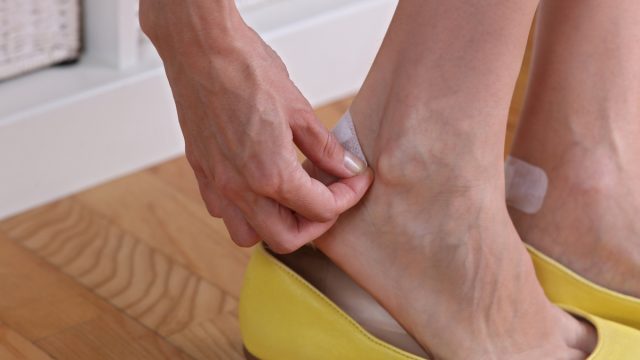
Uncomfortable and unsightly, blisters occur when fluid builds up under the skin’s surface, usually as a result of friction, burn, or trauma. Unfortunately, it doesn’t take long for these wounds to develop on your feet: Wear the wrong pair of shoes just once, and you may suffer a painful and hobbled gait as a result. But this doesn’t mean you have to suffer, as experts say there are several ways to find relief. Read on to learn which seven tips podiatrists and orthopedic surgeons recommend for making your shoes more comfortable if you have blisters.
READ THIS NEXT: 5 “Comfortable” Shoes That Are Actually Bad for Your Feet, Podiatrists Say.
How to Make Your Shoes Comfortable If You Have Blisters
1. Soak and treat your feet.
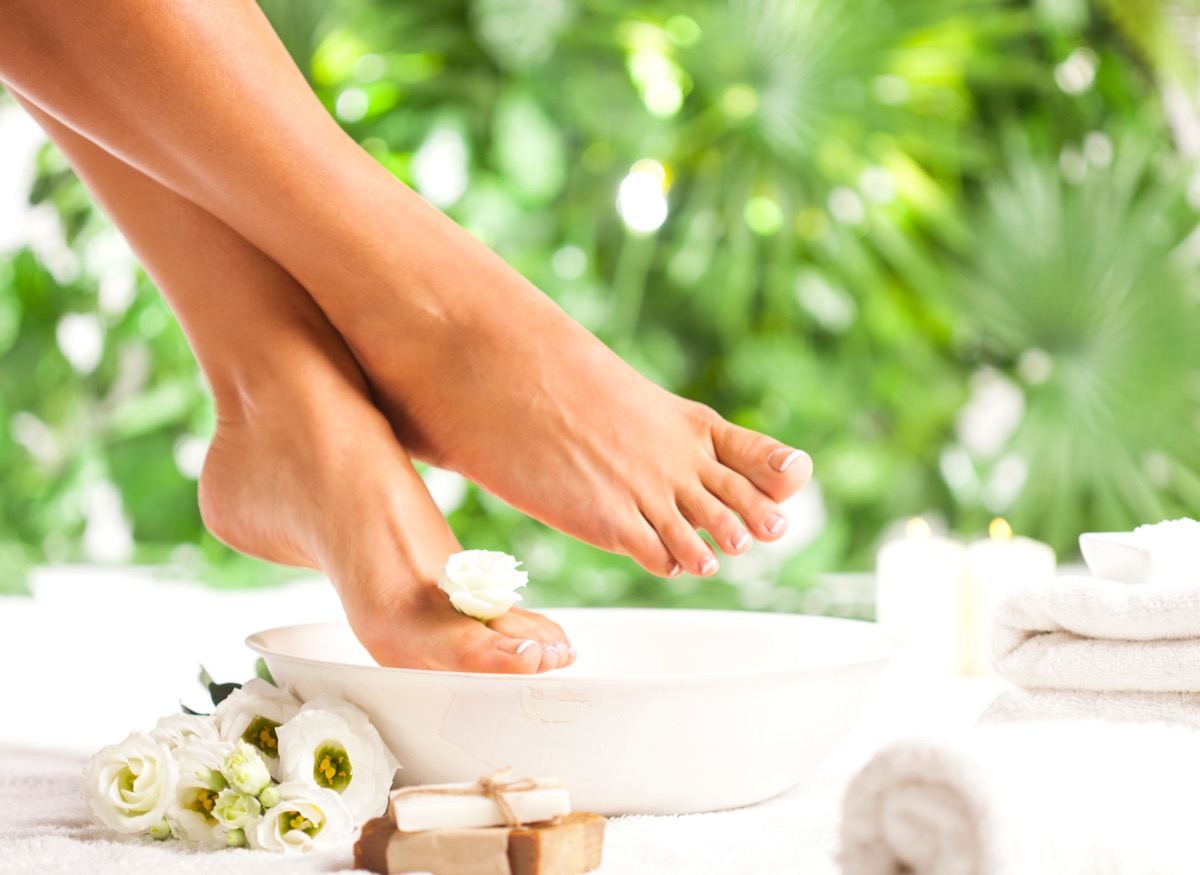
One of the best at-home treatments for a blister is to soak your ailing feet in a saltwater foot bath, says Margaret Trevillion, MSc, a UK-based podiatrist with Walk This Way Podiatry. She recommends following it up by applying an antiseptic and sterile dressing to make things more bearable when you next put on shoes.
“If a blister occurs, do not pop it, as it opens it to infection,” she advises. “Do not pick or pull at the skin, let it naturally heal and fall off.”
The podiatrist notes that signs of infection include heat, swelling, excessive pain, and odor. If you notice any of these symptoms, you should plan on seeing a doctor for professional podiatry treatment and antibiotics.
2. Choose the right footwear.
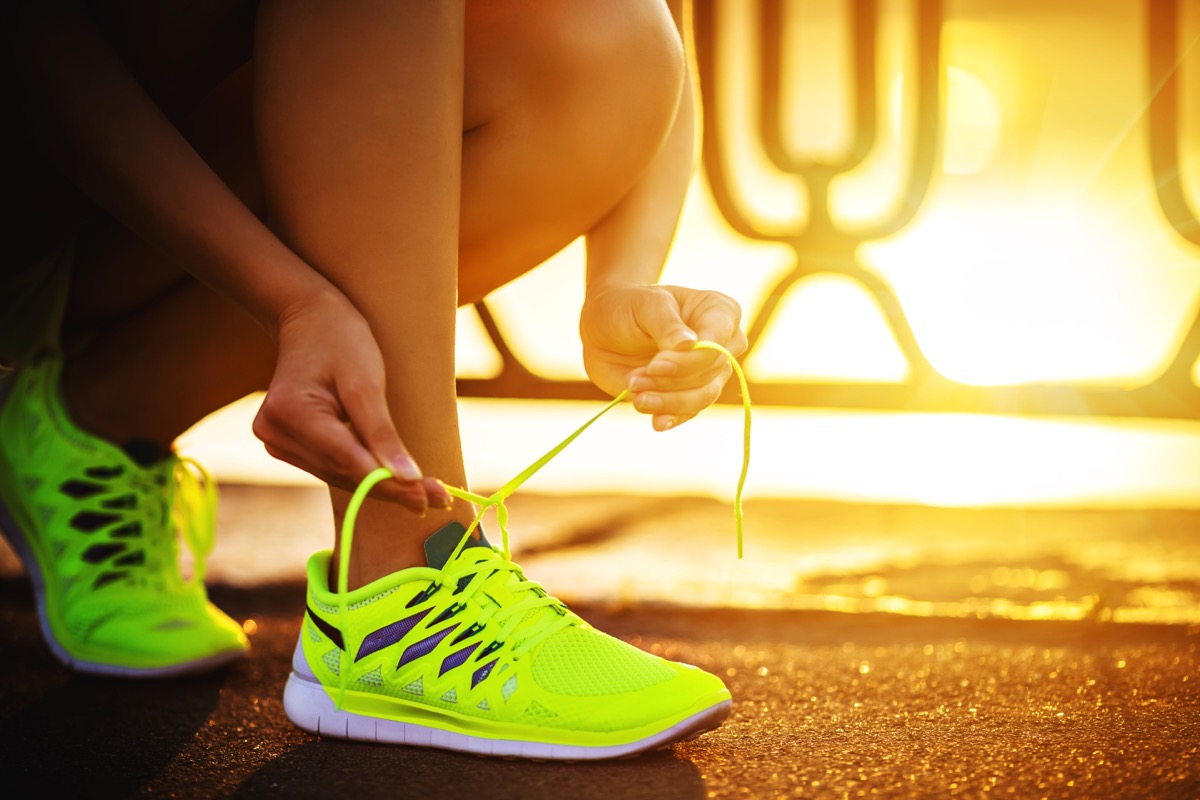
If you’ve got blisters on your feet, choosing the right footwear can make a world of difference to your comfort, says L.S. Wang, MBBS, an orthopedic surgeon and medical director of Arete Orthopaedic Clinic. The key is to find a pair that’s roomy enough not to irritate the injury, yet form-fitting enough to avoid rubbing and causing a new one.
“Overly tight shoes can cause friction, leading to blisters. Wide shoes can also cause similar issues. Picking the right shoes can help protect your blisters and feet, preventing the current conditions from worsening,” he explains.
Mauricio Garcia, MD, an orthopedic surgeon and senior project manager for Hyper Arch Motion, agrees that you should change your footwear at the first signs of discomfort.
“Don’t try to push through the pain as the blister could pop and ultimately become infected,” Garcia tells Best Life. “Changing shoes would be the best solution, but if that is not an option, try and move the piece creating the friction.”
READ THIS NEXT: 6 Tips for Wearing Flats If You’re Over 60, According to Stylists and Podiatrists.
3. Use specialty insoles.
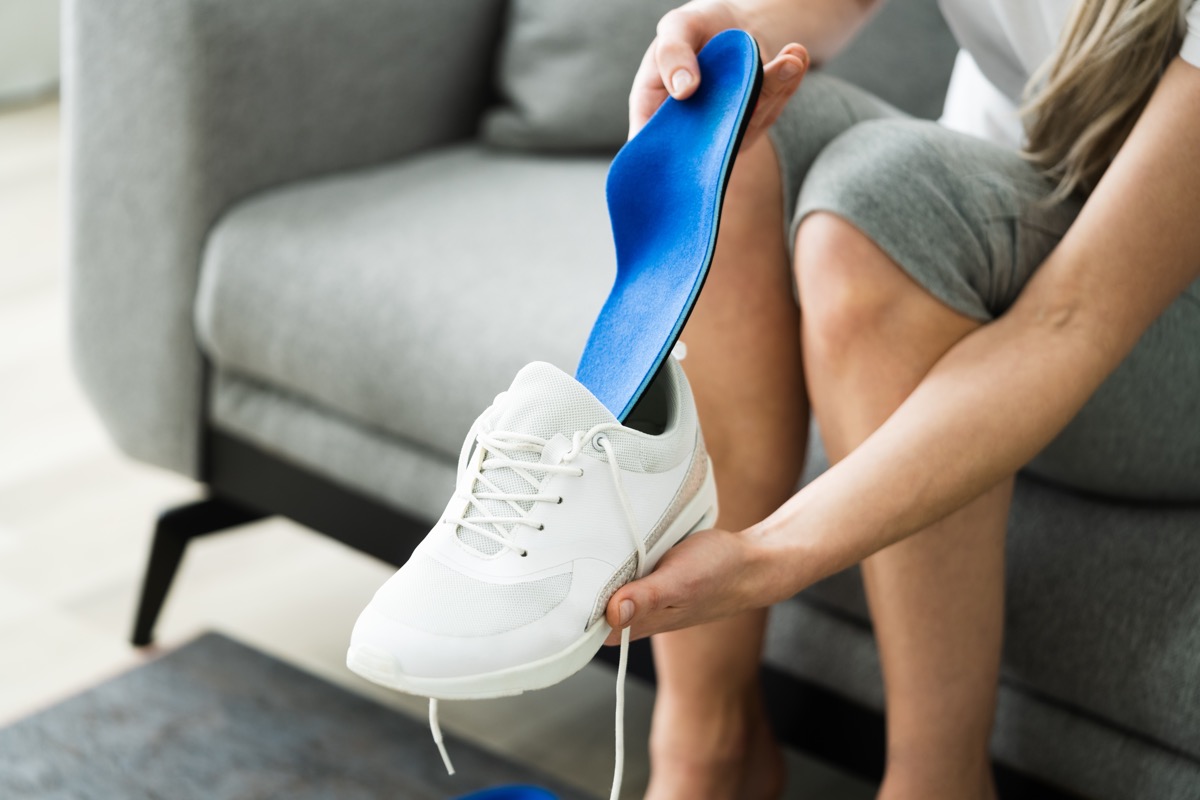
While healing from a blister, it’s important to avoid causing further damage. That’s where specialty insoles come in, says Wang.
“Using specially designed insoles can provide your feet with extra comfort and protection. This is because insoles can not only offer additional cushioning but can also help distribute the pressure across your foot more evenly. Dispersing and separating the pressure can reduce the chance of blisters forming due to high-pressure areas,” he explains.
4. Try anti-blister socks.
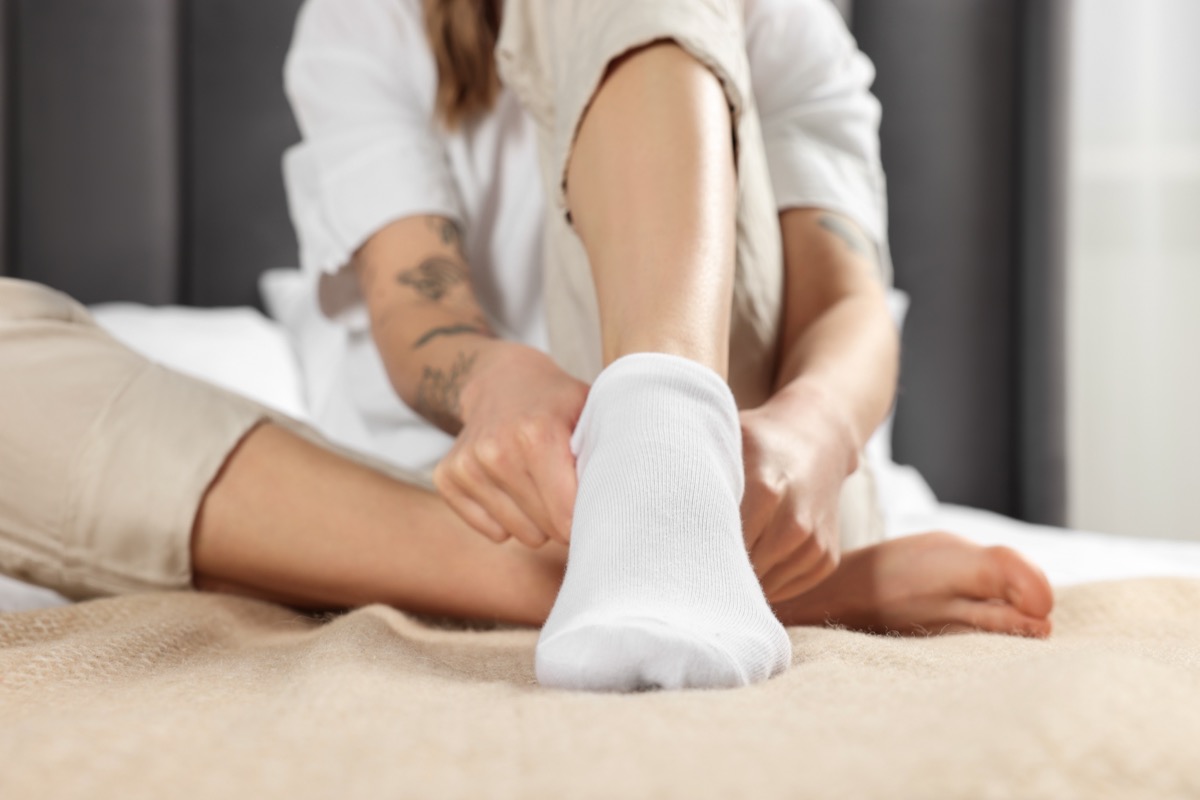
Using anti-blister socks can also help temper the pain you experience after a blister and avoid further damage to the foot.
“Made from specific materials, they are designed to reduce moisture and decrease friction. Compared to cotton socks, they can help reduce blister occurrences,” says Wang.
Trevillion recommends looking for socks made with naturally absorbent and breathable materials. “Opt for moisture-wicking socks made of materials like wool or hemp or bamboo,” she advises. “These socks help keep your feet dry by keeping your feet cool, wicking away moisture, reducing the risk of blisters. Socks also come these days with additional cushioning at the heels, arches, and toes.”
5. Double up on socks.
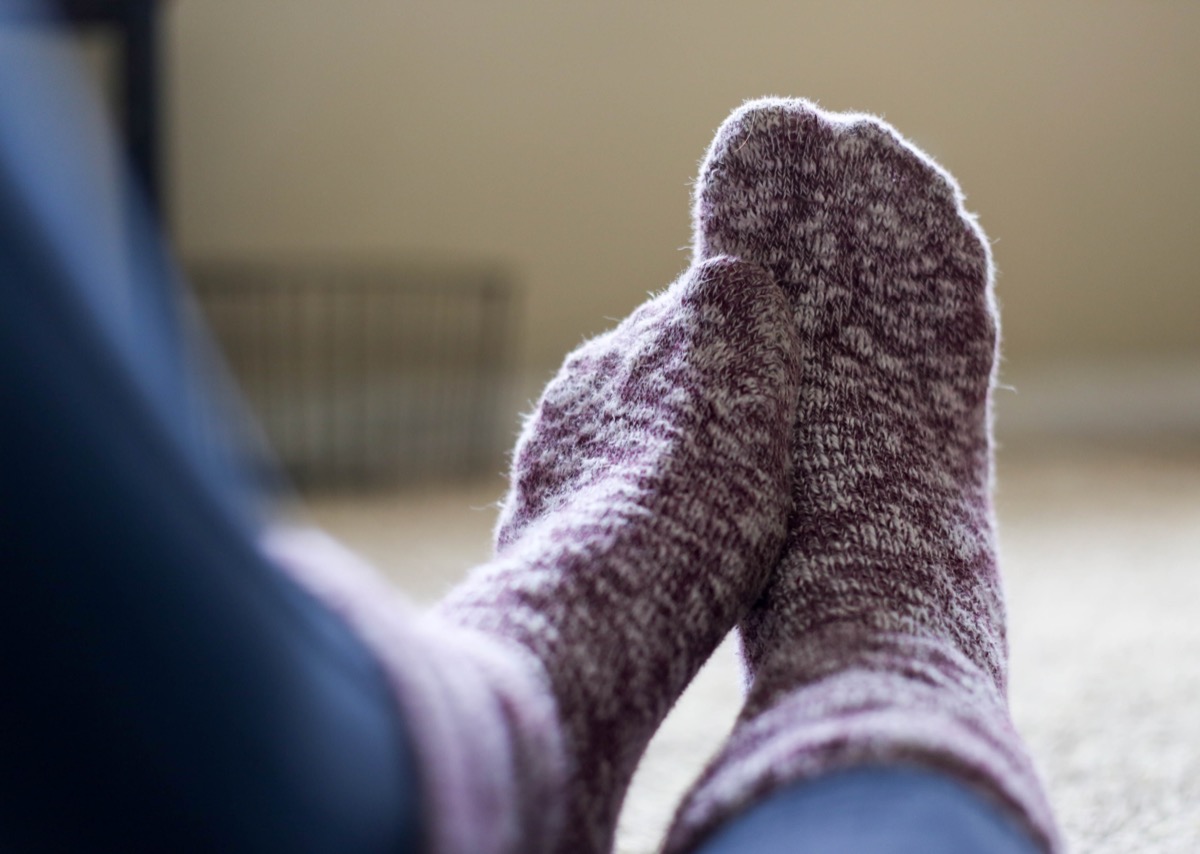
Garcia adds that if you don’t already own anti-blister socks, there are other ways to gain their benefits—by double layering cotton socks, for instance.
“Double-layering your socks not only provides additional cushion and protection, but the extra layer also helps to wick away moisture and reduce friction. Just make sure that if you are going to double-layer, there is enough room in your shoes to accommodate the extra fabric. The last thing you want are shoes that are suddenly too tight and compress and rub against the blister,” Garcia says.
For more wellness advice sent directly to your inbox, sign up for our daily newsletter.
6. Apply protective products.
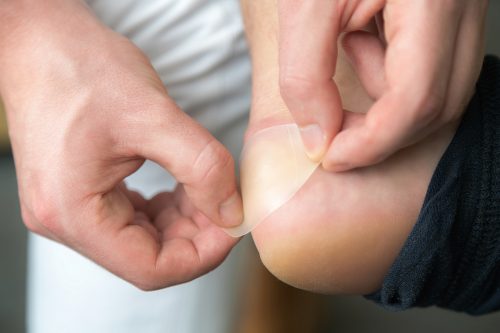
You’ll also want to clean and protect the blistered area to avoid a painful infection or further damage.
“There are lots of options for protecting blisters from interior walls or parts of a shoe that create friction. Blister pads, bandages, and moleskin all adhere to the skin surrounding the blister to provide an adequate barrier,” suggests Garcia.
Once your blister has largely healed, Wang also recommends using anti-friction products like “creams, balms or anti-friction sticks,” which he says can help provide a protective barrier between your skin and your shoes.
7. Avoid the shoes that initially caused the blisters.
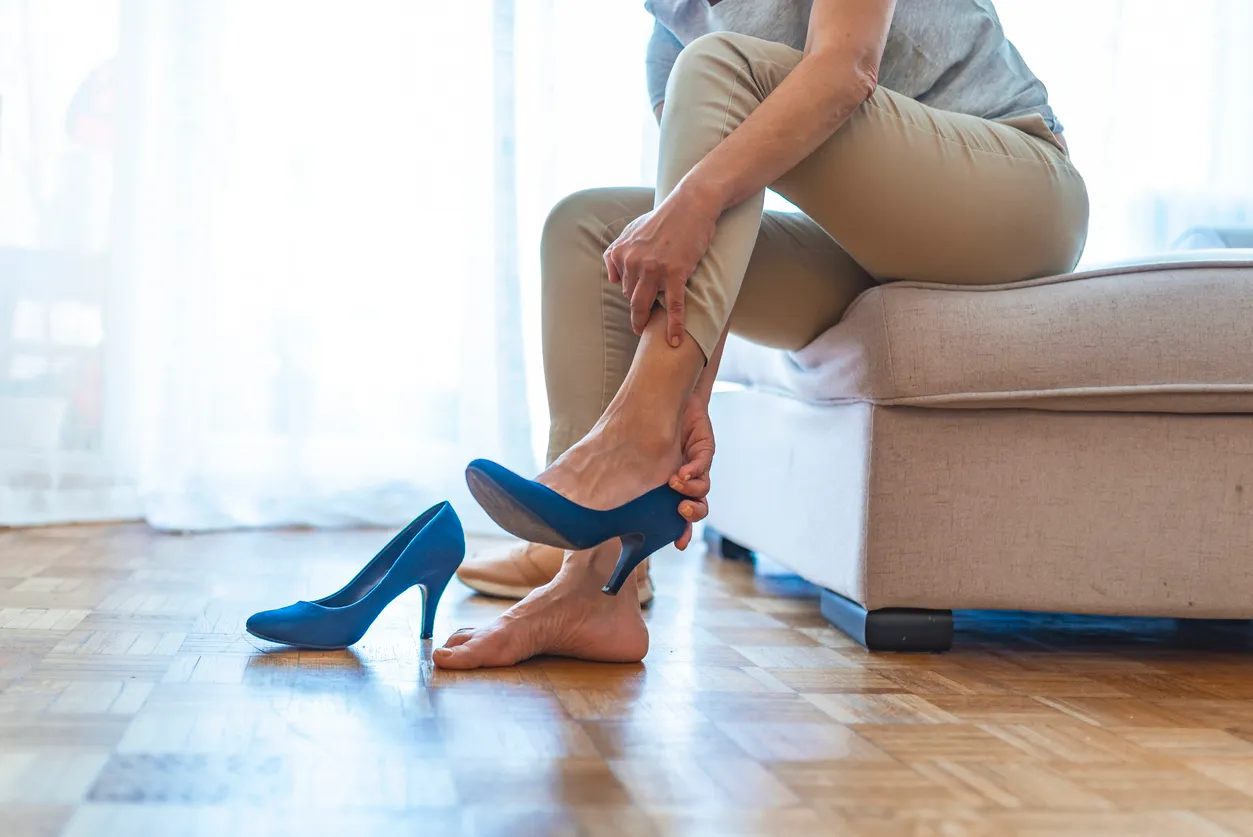
Finally, if one particular pair of shoes caused your blisters, you should avoid them at all costs.
“Instead, opt for shoes that fit properly, have adequate cushioning, and are well broken in until the blister heals,” says Garcia.
However, that doesn’t necessarily mean you’ll need to retire the offending pair of shoes forever. Wang recommends waiting until you’re fully healed, then breaking the shoes in gradually by wearing them for multiple short durations before wearing them for longer periods of time. Make sure to wear protective socks, and consider reinforcing common blister areas with a bandage for added protection, he says.
If you find that blisters occur often and across various types of shoes, a doctor may be able to help you address the problem.
“If you frequently develop blisters or have persistent foot pain, it’s advisable to consult a podiatrist. They can assess your feet, provide appropriate treatment, and offer tailored advice on finding comfortable footwear,” says Trevillion.